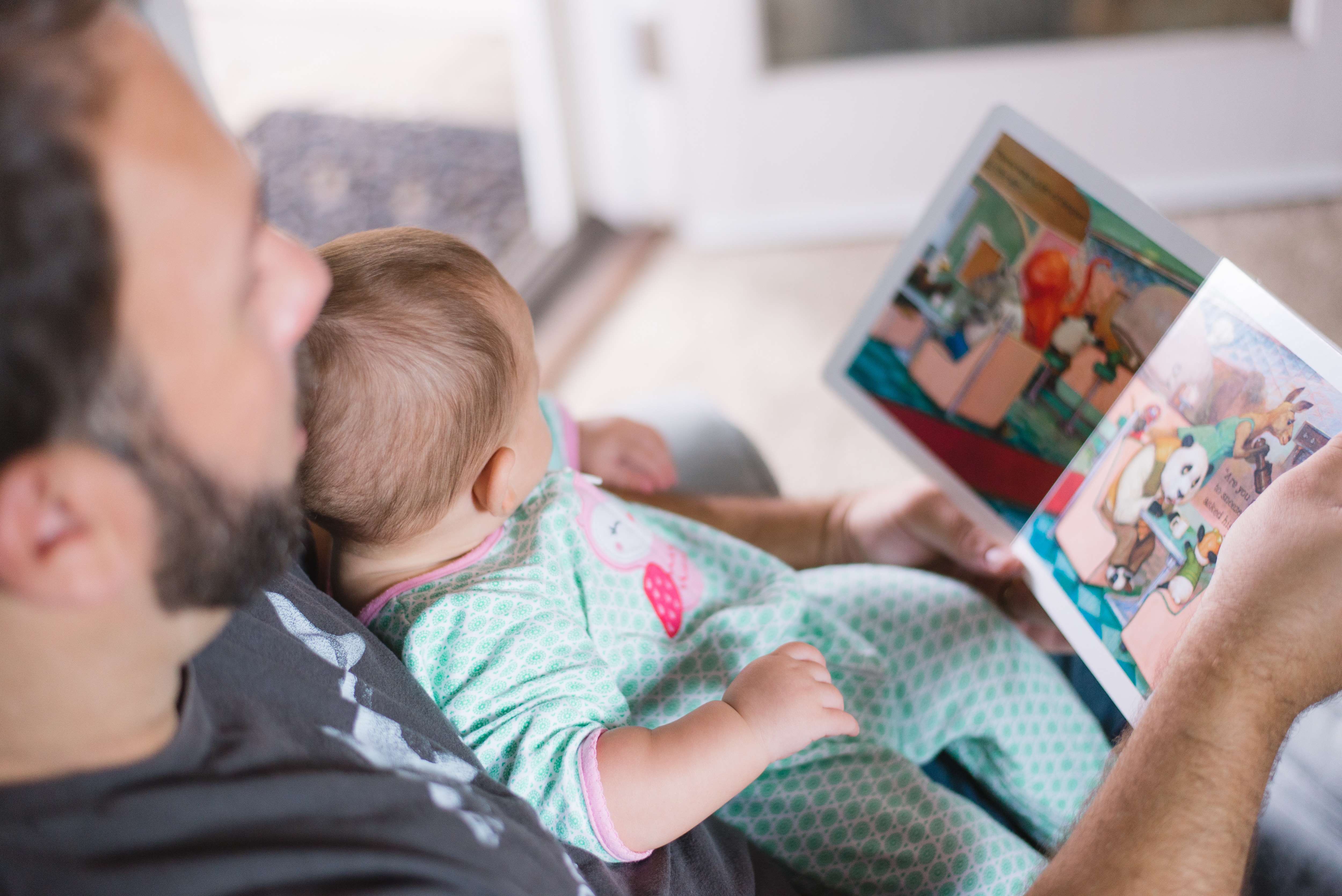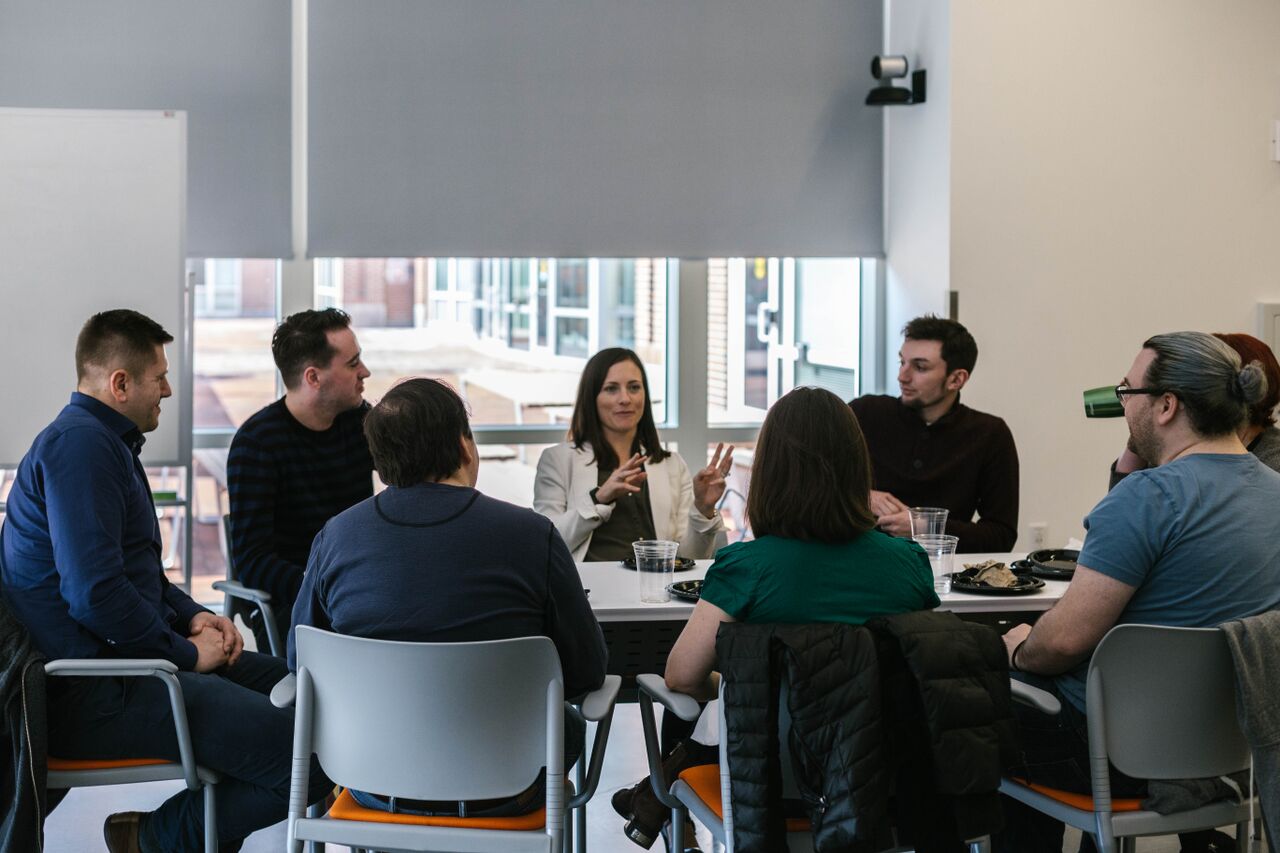

All the pomp and circumstance that comes with graduating from college seems to quickly fade when your next adventure sinks in: job searching. If you graduated with a liberal arts degree, like I did, then this may hit especially close to home. For liberal arts majors, it’s easy to feel at odds with the working world at first. Knowing how to code, tweet, or build a web page is the golden ticket today. Being fluent in art history or gender studies? Not so much.
But here’s the thing: The tech world doesn’t run on technical skills alone. There’s a variety of skills, opinions, and ideas that needs to be at the table for products, apps, or businesses to get built. The most successful companies today are the ones who are thinking differently. That’s why finding a job in tech today is much more about how you think than the degree on your resume.
Recently, a group of liberal arts graduates at HubSpot got together to reminisce on college, share our paths to tech, and understand how we can change the perception that tech is an exclusive club for techies. Because it’s not. In fact, tech needs the diverse thinking that liberal arts grads bring to the table. So, we wanted to share how our education has helped us be assets to the tech world and grow our own careers. In this case the liberal arts graduates we have chosen are alumna of amazing women's colleges because that was my educational experience, but the power of liberal arts isn't relegated to women's schools -- all liberal arts graduates think with creativity.
The bottom line? All roads can lead to tech.
![]()
Maggie Georgieva
 Product Manager, HubSpot
Product Manager, HubSpot- Mount Holyoke College, Class of 2010
- International Media and Communications Major, Russian Studies Minor
What has liberal arts education taught you?
The importance of exploring different academic areas, asking questions, and writing well.
How do you use that today?
In my role as a product manager, I’m constantly asking open-ended questions to discover the real problems our customers and internal stakeholders face with our software. Then, with my team, we explore possible solutions to those problems in order to find one that is efficient, creative, and opportunistic. Ever since I joined the “real world,” my writing skills have not only helped me express my thoughts and ideas, but have also empowered me to make those thoughts strong, crisp, and compelling. I’ve learned that writing well strongly influences how I present in public, express myself visually in whiteboarding or prototyping, and make product decisions.
![]()
Gabriela Lanza
 Senior Product Designer, HubSpot
Senior Product Designer, HubSpot- Wellesley College, Class of 2014
- Media Arts and Sciences and English Double Major
What has liberal arts education taught you?
During my very first days of college, a professor confirmed a fact that most of us know about our college educations but try our best to ignore - that I, that we all, would likely forget most of what we learned in those classes soon after graduating. But that’s okay, the wise professor told me. That isn’t the point of the liberal arts. You don’t go to a liberal arts college simply to learn facts. In my post-graduate day-to-day, I don’t need to know who painted “American Gothic,” or how to calculate the changing elliptical orbit of the earth’s moon (both of which I’ve once learned and forgotten).
The liberal arts is about teaching you how to learn broadly, how to think critically, how to weave the threads of disciplines together. At Wellesley, the time I spent researching facts, developing opinions, and arguing my point about, for example, British media representations of Argentina during the conflict over the Falkland Islands, or how the themes of innocence and shame play into Elizabeth Bishop’s poetry, wasn’t time wasted. Trained by the liberal arts, if you can find something that interests you and put those skills to work, you can tackle nearly any subject.
How do you use that today?
It sounds corny to say it, but going to a liberal arts college really did give me the confidence to face new challenges head-on. Nearly everything I do today I had to learn how to do on the job, and I did so without an ounce of doubt that if I tried hard enough and put my mind to it, I could.
![]()
Beth Dunn
 Product Editor-in-Chief, HubSpot
Product Editor-in-Chief, HubSpot- Mount Holyoke College, Class of 1993
- Geology Major, Ancient Greek Minor
What has liberal arts education taught you?
That there’s a “way in” to any topic or field of study, regardless of what your strengths are. I’m a writer and editor, but I fell head over heels in love with geology when I was at Mount Holyoke through the writing of John McPhee. Changed my major, changed how I thought about myself. I was never much interested in science before that, but his writing made me see the beauty, majesty, human interest, scope, and intrigue of the thing. Once I realized there was probably a similar way I could get myself hooked on any field of study, I started looking for that hook in everything I encountered. Basically, my liberal arts education taught me how to be rabidly curious about things in a way that works for me and my own (relatively non-sciencey) brain.
How do you use that today?
I know there’s no area of study or application that’s off-limits to me -- I can always find an angle that allows me to get what’s going on, if I poke and prod at the thing long enough until I find it. That’s invaluable as somebody with a nontechnical background in an increasingly technical world. I taught myself how to build websites, the fundamentals of design, and a bunch of other really interesting things that eventually led me to my role here at HubSpot. It means I can work alongside some highly technical colleagues and ask intelligent questions about how they do what they do. It’s made me much more fearless about asking questions, and better at knowing what to do with the answers, too.
![]()
Mimi An
 Principal Market Research Manager, HubSpot
Principal Market Research Manager, HubSpot- Wellesley College, Class of 2008
- Political Science Major
What has liberal arts education taught you?
Critical thinking, adaptability, and persuasively arguing a point. Sticking to your guns, accepting different perspectives, empathy. Also the beauty of travel thanks to our amazing travel abroad program. I got to see how wide the world really was, and understand how other cultures prioritized life.
How do you use that today?
As a research analyst, I own end to end data projects. That requires a huge amount of planning, coordination, communication, brainstorming, analysis, and finally, a lot of writing. Because my projects take months to complete, I have to plot out my goals far ahead of time, and anticipate what the data will tell me. If the data comes out an unexpected way, I have to adjust and work out why.
![]()
Emily Sleeper
 Customer Success Manager, HubSpot
Customer Success Manager, HubSpot- Wellesley College, Class of 2014
- Cognitive and Linguistic Sciences Major, Math Minor
What has liberal arts education taught you?
A liberal arts education taught me the importance of recognizing different viewpoints, as well as how to work effectively with others with a variety of opinions and approaches. I also was taught that there is always more than one way to tackle a problem and that it’s important to be flexible to find the best solution.
How do you use that today?
As a Customer Success Manager, I currently work with around 175 customers. Similar to the wide range of a liberal arts education, my customers vary dramatically in terms of industry, size, and their marketing/sales goals. It’s critical for me to recognize each customer’s unique situation and pivot to identify new approaches to help them drive their marketing.
![]()
Marissa Okoli
 Front End Web Development Intern, HubSpot
Front End Web Development Intern, HubSpot- Wellesley College, Class of 2018
- Media Arts and Sciences Major, Math Minor
What has liberal arts education taught you?
What I had always been told about a liberal arts education (and what I have also come to believe about it myself) is that liberal arts isn’t about teaching you how to do a particular discipline. So many other institutions are geared towards providing you with the skillset(s) needed to tackle particular challenges, but the beauty of a liberal arts education is that, with its approach, you are equipped with the discipline to tackle any challenge. Liberal arts instills the fundamental methodologies required to be successful in many different fields, because the focus is less on the result and more on the process. Liberal arts teaches you how to approach challenges, think critically about solutions, strategize, consider diverse perspectives, write effectively to communicate your goals, negotiate, and intrinsically inspires what it means to be a lifelong learner, thinker and innovator. Regardless of the path we choose, through exposure to many different disciplines, we are able to piece together the thread that ties them all together and apply their unique aspects in new and innovative ways across all fields. We are not taught: "I can’t because this is not my area of expertise." We are taught: "I can’t *yet,* let me go articulate my ideas to those that can and together we can create something remarkable.” In short, a liberal arts education has taught me empowerment.
How do you use that today?
I use it to GSD (Get Shit Done).
![]()
Jean Lee
 Channel Specialist, HubSpot
Channel Specialist, HubSpot- Wellesley College, Class of 2013
- Sociology Major
What has liberal arts education taught you?
To never accept anything at face value. With any given problem, situation, or even person, there can be a different solution/approach, an underlying motivation, or something we just don’t see by taking one quick glance. And trying to get a holistic view of whatever is in front of us - that’s what makes life interesting!
How do you use that today?
I use it to understand people and communicate with them. I use it to process information. I use it to make things better. I use it for… everything! What I learned in school wasn’t so much of a siloed skill, but simply a way of thinking.
![]()
Elizabeth Good
 Culture Coordinator, HubSpot
Culture Coordinator, HubSpot- Wellesley College, Class of 2009
- Political Science and Spanish Double Major
What has liberal arts education taught you?
LIberal arts taught me to cast a wide net! I’ve never felt that just because something wasn’t in my realm of expertise that I couldn’t still poke and prod and learn whatever I could about it. My senior year I took a class called “The Physics of Marine Mammals” which sounds about as whale-watchy as it gets. My other classes were driven by Hobbes and Kant, Almodovar and Neruda -- but this, this class was just for me to learn something new. I don’t remember much about what I learned about echolocation or how baleen helps whales eat. I do, however, viscerally remember the way it felt to know nothing about a topic and still jump into learning without fear. I relished the opportunity to stretch my brain in a new way, to learn for learning’s sake.
How do you use that today?
I raise my hand more. I seek out opportunities to learn something new and apply it and try not to let a lack of experience get in my way. I don’t mistake enthusiasm for expertise by any stretch, but I remind myself often that learning is a lifelong pursuit and I’d be foolish to waste a chance at it.
![]()







